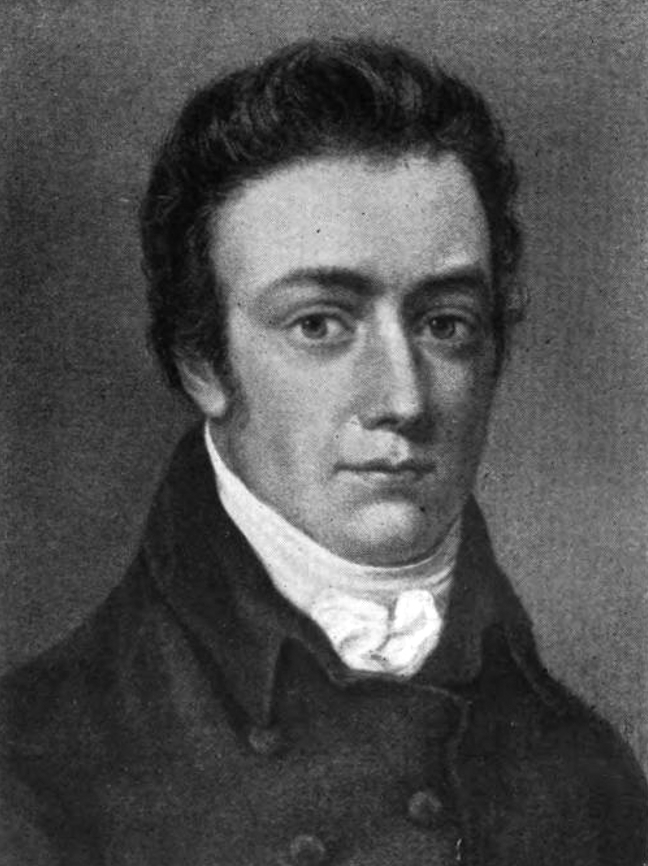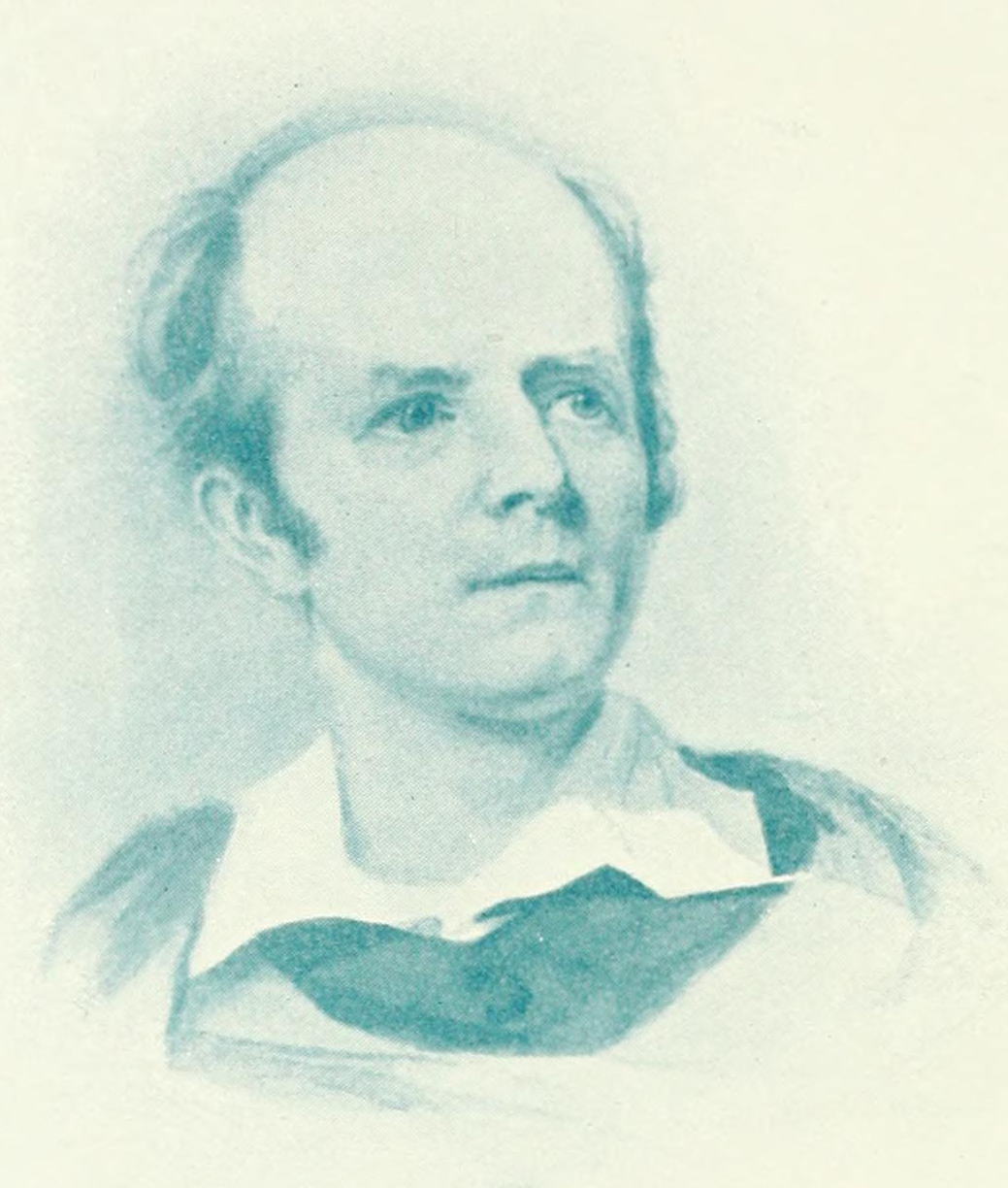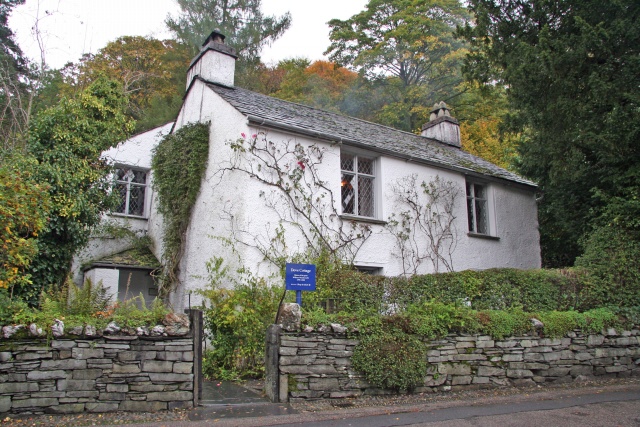|
Frost At Midnight
''Frost at Midnight'' is a poem by Samuel Taylor Coleridge, written in February 1798. Part of the conversation poems, the poem discusses Coleridge's childhood experience in a negative manner and emphasizes the need to be raised in the countryside. The poem expresses hope that Coleridge's son, Hartley, would be able to experience a childhood that his father could not and become a true "child of nature". The view of nature within the poem has a strong Christian element in that Coleridge believed that nature represents a physical presence of God's word and that the poem is steeped in Coleridge's understanding of Neoplatonism. ''Frost at Midnight'' has been well received by critics, and is seen as the best of the conversation poems. Background ''Frost at Midnight'' was written in February 1798 when he described to Thomas Poole aspects of his childhood at Christ's Hospital school that are similar to the content of the poem. The rest comes from Coleridge's experience with his frie ... [...More Info...] [...Related Items...] OR: [Wikipedia] [Google] [Baidu] |
Samuel Taylor Coleridge
Samuel Taylor Coleridge (; 21 October 177225 July 1834) was an English poet, literary critic, philosopher, and theologian who, with his friend William Wordsworth, was a founder of the Romantic Movement in England and a member of the Lake Poets. He also shared volumes and collaborated with Charles Lamb, Robert Southey, and Charles Lloyd. He wrote the poems '' The Rime of the Ancient Mariner'' and '' Kubla Khan'', as well as the major prose work '' Biographia Literaria''. His critical work, especially on William Shakespeare, was highly influential, and he helped introduce German idealist philosophy to English-speaking cultures. Coleridge coined many familiar words and phrases, including " suspension of disbelief". He had a major influence on Ralph Waldo Emerson and American transcendentalism. Throughout his adult life, Coleridge had crippling bouts of anxiety and depression; it has been speculated that he had bipolar disorder, which had not been defined during his lifet ... [...More Info...] [...Related Items...] OR: [Wikipedia] [Google] [Baidu] |
Joseph Cottle
Joseph Cottle (1770–1853) was an English publisher and author. Cottle started business in Bristol. He published the works of Samuel Taylor Coleridge and Robert Southey on generous terms. He then wrote in his ''Early Recollections'' an exposure of Coleridge that was, at the time, severely criticised and generally condemned. Life He was the brother of Amos Simon Cottle but did not receive his classical education; he was for two years at the school of Richard Henderson. Henderson advised him to become a bookseller, and Cottle set up in business in 1791. In 1794 he made, through Robert Lovell, the acquaintance of Coleridge and Southey, then in Bristol and preparing for emigration to America. Coleridge had been offered in London six guineas for the copyright of his poems, but Cottle offered thirty, and the same sum to Southey, also proposing to give the latter fifty guineas for his ''Joan of Arc'', and made arrangements for the lectures delivered on behalf of pantisocracy. He faci ... [...More Info...] [...Related Items...] OR: [Wikipedia] [Google] [Baidu] |
1798 Poems
Events January–June * January – Eli Whitney contracts with the U.S. federal government for 10,000 muskets, which he produces with interchangeable parts. * January 4 – Constantine Hangerli enters Bucharest, as Prince of Wallachia. * January 22 – A coup d'état is staged in the Netherlands ( Batavian Republic). Unitarian Democrat Pieter Vreede ends the power of the parliament (with a conservative-moderate majority). * February 10 – The Pope is taken captive, and the Papacy is removed from power, by French General Louis-Alexandre Berthier. * February 15 – U.S. Representative Roger Griswold (Fed-CT) beats Congressman Matthew Lyon (Dem-Rep-VT) with a cane after the House declines to censure Lyon earlier spitting in Griswold's face; the House declines to discipline either man.''Harper's Encyclopaedia of United States History from 458 A. D. to 1909'', ed. by Benson John Lossing and, Woodrow Wilson (Harper & Brothers, 1910) p171 * March &nda ... [...More Info...] [...Related Items...] OR: [Wikipedia] [Google] [Baidu] |
Gothic Fiction
Gothic fiction, sometimes called Gothic horror in the 20th century, is a loose literary aesthetic of fear and haunting. The name is a reference to Gothic architecture of the European Middle Ages, which was characteristic of the settings of early Gothic novels. The first work to call itself Gothic was Horace Walpole's 1764 novel ''The Castle of Otranto'', later subtitled "A Gothic Story". Subsequent 18th century contributors included Clara Reeve, Ann Radcliffe, William Thomas Beckford, and Matthew Lewis. The Gothic influence continued into the early 19th century, works by the Romantic poets, and novelists such as Mary Shelley, Charles Maturin, Walter Scott and E. T. A. Hoffmann frequently drew upon gothic motifs in their works. The early Victorian period continued the use of gothic, in novels by Charles Dickens and the Brontë sisters, as well as works by the American writers Edgar Allan Poe and Nathaniel Hawthorne. Later prominent works were '' Dracula'' by Bra ... [...More Info...] [...Related Items...] OR: [Wikipedia] [Google] [Baidu] |
William Godwin
William Godwin (3 March 1756 – 7 April 1836) was an English journalist, political philosophy, political philosopher and novelist. He is considered one of the first exponents of utilitarianism and the first modern proponent of anarchism. Godwin is most famous for two books that he published within the space of a year: ''Enquiry Concerning Political Justice, An Enquiry Concerning Political Justice'', an attack on political institutions, and ''Things as They Are; or, The Adventures of Caleb Williams'', an early mystery novel which attacks Aristocracy (class), aristocratic privilege. Based on the success of both, Godwin featured prominently in the radical circles of London in the 1790s. He wrote prolifically in the genres of novels, history and demography throughout his life. In the conservative reaction to Radicalism (historical), British radicalism, Godwin was attacked, in part because of his marriage to the feminist writer Mary Wollstonecraft in 1797 and Memoirs of the Author ... [...More Info...] [...Related Items...] OR: [Wikipedia] [Google] [Baidu] |
Lines Written A Few Miles Above Tintern Abbey
''Lines Written a Few Miles above Tintern Abbey'' is a poem by William Wordsworth. The title, ''Lines Written'' (or ''Composed'') ''a Few Miles above Tintern Abbey, on Revisiting the Banks of the Wye during a Tour, July 13, 1798'', is often abbreviated simply to ''Tintern Abbey'', although that building does not appear within the poem. It was written by Wordsworth after a walking tour with his sister in this section of the Welsh Borders. The description of his encounters with the countryside on the banks of the River Wye grows into an outline of his general philosophy. There has been considerable debate about why evidence of the human presence in the landscape has been downplayed and in what way the poem fits within the 18th-century loco-descriptive genre. Background The poem has its roots in Wordsworth's personal history. He had previously visited the area as a troubled twenty-three-year-old in August 1793. Since then he had matured and his seminal poetical relationship wit ... [...More Info...] [...Related Items...] OR: [Wikipedia] [Google] [Baidu] |
Lake Poets
The Lake Poets were a group of English poets who all lived in the Lake District of England, United Kingdom, in the first half of the nineteenth century. As a group, they followed no single "school" of thought or literary practice then known. They were named, only to be uniformly disparaged, by the ''Edinburgh Review''. They are considered part of the Romantic Movement. The three main figures of what has become known as the Lakes School were William Wordsworth, Samuel Taylor Coleridge, and Robert Southey. They were associated with several other poets and writers, including Dorothy Wordsworth, Charles Lamb, Mary Lamb, Charles Lloyd, Hartley Coleridge, John Wilson, and Thomas De Quincey. Origins and accuracy of the name The "Lake Poet School" (or 'Bards of the Lake', or the 'Lake School') was initially a derogatory term ("the School of whining and hypochondriacal poets that haunt the Lakes", according to Francis Jeffrey as reported by Coleridge) that was also a misnomer, as it was ... [...More Info...] [...Related Items...] OR: [Wikipedia] [Google] [Baidu] |
Lake District
The Lake District, also known as the Lakes or Lakeland, is a mountainous region in North West England. A popular holiday destination, it is famous for its lakes, forests, and mountains (or '' fells''), and its associations with William Wordsworth and other Lake Poets and also with Beatrix Potter and John Ruskin. The Lake District National Park was established in 1951 and covers an area of . It was designated a UNESCO World Heritage Site in 2017. The Lake District is today completely within Cumbria, a county and administrative unit created in 1974 by the Local Government Act 1972. However, it was historically divided between three English counties (Cumberland, Westmorland and Lancashire), sometimes referred to as the Lakes Counties. The three counties met at the Three Shire Stone on Wrynose Pass in the southern fells west of Ambleside. All the land in England higher than above sea level lies within the National Park, including Scafell Pike, the highest mountain in England. ... [...More Info...] [...Related Items...] OR: [Wikipedia] [Google] [Baidu] |
On Quitting School
"On Quitting School" is a sonnet written by Samuel Taylor Coleridge in 1791. It describes Coleridge's feelings of leaving school for Cambridge in an optimistic manner quite contrary to the views he expressed later in life. Background Coleridge attended Christ's Hospital for his pre-college education and completed many poetic exercises there. During his final year, he wrote "On Quitting School for College" for an exercise. He included his feelings about his school years, his future at college, and his childhood home at Ottery.Ashton 1997 p. 30 It was completed during the summer of 1791 (see 1791 in poetry) and included in the ''Ottery Copy Book'', a manuscript containing poetry from Coleridge's early years. The poem was eventually published in the 1834 edition of Coleridge's poems (see 1834 in poetry). Another poem titled "Absence: A Farewell Ode on Quitting School for Jesus College, Cambridge", and Coleridge stated that he wrote it during 1791. It was published in the Sherborne ' ... [...More Info...] [...Related Items...] OR: [Wikipedia] [Google] [Baidu] |
George Beaumont
Sir George Howland Beaumont, 7th Baronet (6 November 1753 – 7 February 1827) was a British art patron and amateur painter. He played a crucial part in the creation of London's National Gallery by making the first bequest of paintings to that institution. Biography Born in Great Dunmow, Essex, he was the only surviving child of the landowner Sir George Beaumont, 6th Baronet, from whom he inherited the baronetcy in 1762 (see Beaumont baronets) and Rachel ee Howlanddaughter of Michael Howland of Stone Hall, Matching Green. Beaumont was educated at Eton College, where he was taught drawing by the landscape painter Alexander Cozens. The first paintings to enter Beaumont's collection were by artists he knew, but a Grand Tour which he undertook in 1782 with his wife Margaret (the daughter of John Willes M.P., of Astrop, Oxon and granddaughter of Sir John Willes M.P., Chief Justice of the Court of Common Pleas) widened his taste to include the Old Masters. On his return he beg ... [...More Info...] [...Related Items...] OR: [Wikipedia] [Google] [Baidu] |
1817 In Poetry
Nationality words link to articles with information on the nation's poetry or literature (for instance, Irish or France). Events * February 28 – Lord Byron writes a letter to Thomas Moore and includes in it his poem, "So, we'll go no more a roving". Moore will publish the poem in 1830 as part of ''Letters and Journals of Lord Byron''. * March – Percy and Mary Shelley with Claire Clairmont and the latter's new daughter by Byron, Allegra (at this time called Alba), having moved from Bath, begin a year's residence in Marlow, Buckinghamshire, England, where Mary completes ''Frankenstein'' and gives birth to her third child, and Percy writes ''The Revolt of Islam''. * September 19 – The body of Scottish poet Robert Burns (died 1796) is moved to a new mausoleum in Dumfries. * December 28 – English painter Benjamin Haydon introduces John Keats to William Wordsworth and Charles Lamb at a dinner in London to celebrate progress on his painting ''Christ's Entry ... [...More Info...] [...Related Items...] OR: [Wikipedia] [Google] [Baidu] |
Charles Lloyd (poet)
Charles Lloyd II (12 February 1775 – 16 January 1839) was an English poet who was a friend of Charles Lamb, Samuel Taylor Coleridge, Robert Southey, William Wordsworth, Dorothy Wordsworth and Thomas de Quincey. His best-known poem is "Desultory Thoughts in London". Early life Born in Birmingham, Charles Lloyd II was the eldest son of Charles Lloyd (1748–1828), the Quaker banker and philanthropist. His sister Priscilla married Christopher Wordsworth (brother of the poet) and another sister Anna Braithwaite was a Quaker preacher who toured Britain, Ireland and the United States several times. He was educated by a private tutor with the idea that he would work at his father's bank, but finance bored him. Instead he turned to poetry, his first publication appearing in 1795. Soon after he met Samuel Taylor Coleridge and moved in with him, Coleridge agreeing to instruct him in return for £80 a year. Coleridge's "To a Friend" and "To a Young Man of Fortune" are probably addressed ... [...More Info...] [...Related Items...] OR: [Wikipedia] [Google] [Baidu] |

%2C_Portrait_miniature%2C1809.jpg)







